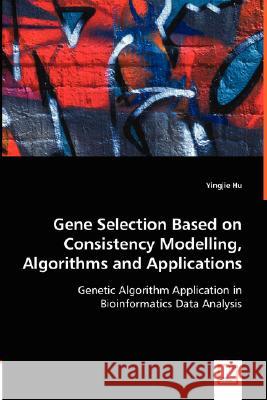Gene Selection Based on Consistency Modelling, Algorithms and Applications - Genetic Algorithm Application in Bioinformatics Data Analysis » książka
Gene Selection Based on Consistency Modelling, Algorithms and Applications - Genetic Algorithm Application in Bioinformatics Data Analysis
ISBN-13: 9783639008838 / Angielski / Miękka / 2008 / 112 str.
Gene Selection Based on Consistency Modelling, Algorithms and Applications - Genetic Algorithm Application in Bioinformatics Data Analysis
ISBN-13: 9783639008838 / Angielski / Miękka / 2008 / 112 str.
(netto: 208,74 VAT: 5%)
Najniższa cena z 30 dni: 218,66
ok. 10-14 dni roboczych.
Darmowa dostawa!
Consistency modeling for gene selection is a new topic emerging from recent cancer bioinformatics research. The result of classification or clustering on a training set was often found very different from the same operations on a testing set. Here, the issue is addressed as a consistency problem. In practice, the inconsistency of microarray datasets prevents many typical gene selection methods working properly for cancer diagnosis and prognosis. In an attempt to deal with this problem, a new concept of performance-based consistency is proposed in this thesis. The proposed consistency concept has been investigated on eight benchmark microarray and proteomic datasets. The experimental results show that the different microarray datasets have different consistency characteristics, and that better consistency can lead to an unbiased and reproducible outcome with good disease prediction accuracy.
Consistency modeling for gene selection is a new topic emerging from recent cancer bioinformatics research. The result of classification or clustering on a training set was often found very different from the same operations on a testing set. Here, the issue is addressed as a consistency problem. In practice, the inconsistency of microarray datasets prevents many typical gene selection methods working properly for cancer diagnosis and prognosis. In an attempt to deal with this problem, a new concept of performance-based consistency is proposed in this thesis. The proposed consistency concept has been investigated on eight benchmark microarray and proteomic datasets. The experimental results show that the different microarray datasets have different consistency characteristics, and that better consistency can lead to an unbiased and reproducible outcome with good disease prediction accuracy.











